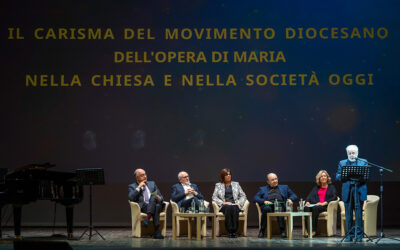 “I’m an African studying in Northern Italy. Some time ago I read an article in a magazine in which the author spoke of a “night” that had fallen over Western culture, causing it to lose authentic Christian values. To tell the truth, I didn’t really understand the meaning of the text until something happened that opened my eyes. It was a Saturday afternoon. Some guys who live nearby invited me to to go out with them for an evening together. They wanted to do something different. There were six or seven of us. At first we went to a dance at a local place. At first it was fun, they told me that the music was in my blood and that I really knew how to dance. But I soon noticed that the people around me were dancing without any respect for themselves or for others. They weren’t dancing for the sheer enjoyment of it, but in order to taunt each other with mixed messages. I heard the subtle voice within me telling me to go against the current by dancing with dignity and with love that was sincere.
“I’m an African studying in Northern Italy. Some time ago I read an article in a magazine in which the author spoke of a “night” that had fallen over Western culture, causing it to lose authentic Christian values. To tell the truth, I didn’t really understand the meaning of the text until something happened that opened my eyes. It was a Saturday afternoon. Some guys who live nearby invited me to to go out with them for an evening together. They wanted to do something different. There were six or seven of us. At first we went to a dance at a local place. At first it was fun, they told me that the music was in my blood and that I really knew how to dance. But I soon noticed that the people around me were dancing without any respect for themselves or for others. They weren’t dancing for the sheer enjoyment of it, but in order to taunt each other with mixed messages. I heard the subtle voice within me telling me to go against the current by dancing with dignity and with love that was sincere.
A few hours later, my friends wanted to go to another place. I went along, after all, they were my friends, and I accepted their proposal. We reached a place and went in. Without any time to realize where I was, surrounded by such loud music, psychedelic lights and an acrid odour that was filling my nose, I found myself feeling quite shocked. This wasn’t a normal disco, there were young women there prostituting themselves. I felt disappointed and angry. Without saying a word I turned around and walked out. One of my friends followed me. He insulted me, calling me backward. I didn’t answer him. A few moments later another friend came up to me, not to insult me but to agree with me. Finally another friend slipped out of the place and he also agreed with me. Without saying a word about my Christian beliefs or that I believe in God, they all saw and understood. A few months passed. I never thought about the incident again. One day one of the guys came to me and apologized, telling me that he didn’t want to go to places like that. This experience helped me to more radically understand why it is necessary to risk and say “no” to certain things.”
This story of Yves from Cameroon, is one of 94 stories published in “Good News” recently published in Italian by Citta Nuova, as a positive contribution to the New Evangelization. It has a preface written by Maria Voce. The protagonists of these stories are young people, families, professionals, workers, directors, consecrated religious and priests who face daily challenges with the help of the Gospel. A people that believes, lives, moves and engages others, with due respect for the beliefs and experience of all, with the awareness that every human being brings something good to the great human family.
Do you have some good news to share?




0 Comments